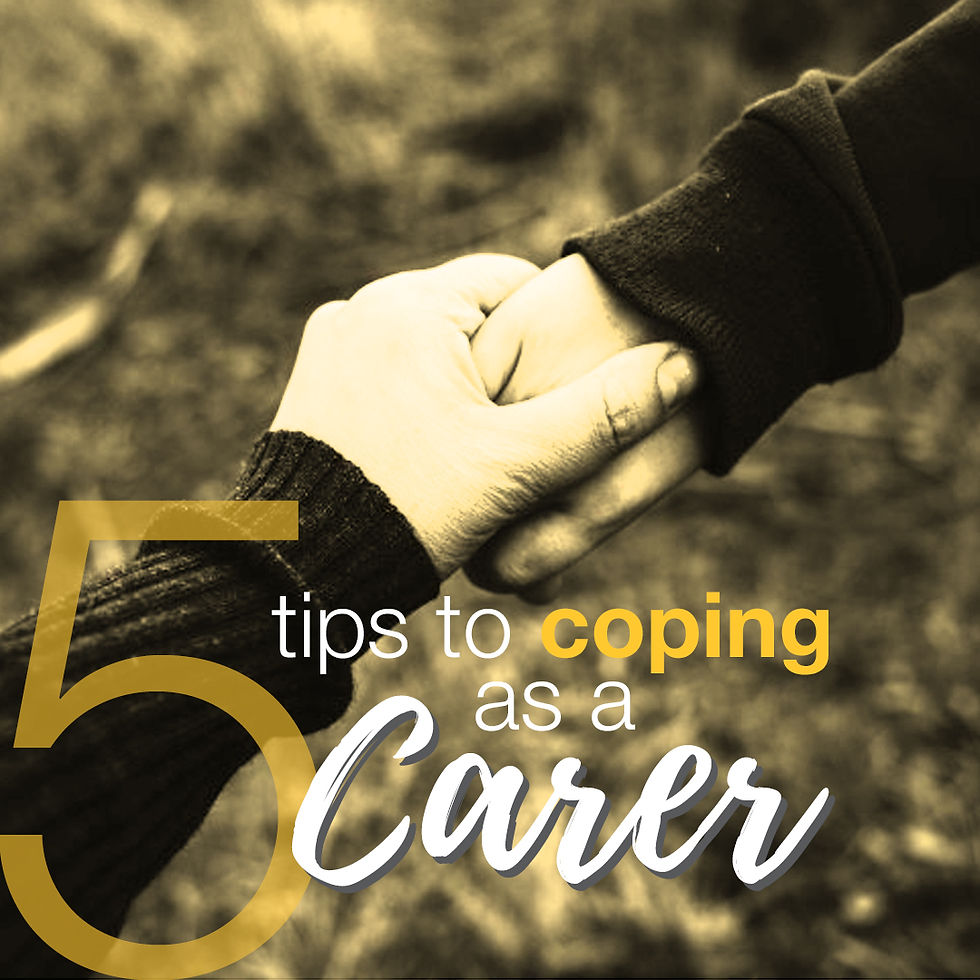Five Ways to be Valued as a Carer
- Bright Butterfly

- Jan 14, 2022
- 3 min read

When trauma strikes, whether a serious medical diagnosis or an emotional crisis, the situation is as difficult for family and loved ones as it is for the person involved. I can speak to this personally—when I was diagnosed with cancer, the impact on my 16-year-old daughter was as huge as it was for me.
Her usually fit working mum was suddenly a cancer patient undergoing surgery and chemotherapy. I was recently divorced at the time, so it was just the two of us navigating this new world of medical appointments and treatment. In her final two years of high school, her role changed from teenager to part-time cook, cleaner and patient carer. All while she was worried if her mother was going to live or die. There is no way I would have survived all those years of treatment without her and I will be eternal grateful. She never complained and supported me unconditionally.
If you find yourself in a similar situation, caring for a partner, child, parent, family member or friend, then these are some actions that they will value the most.
1. Be Present
Just knowing you are there and available is incredibly reassuring for the person experiencing trauma. Whatever the crisis, your presence is appreciated immensely. All they need is a listening ear, someone to express their feelings to without judgement or fear of recrimination. A person who they can ask for assistance without feeling like a burden.
2. Be Positive
One of the biggest emotional concerns for someone going through a crisis is the worry about how their situation will affect their loved ones. A mother going through a divorce may be devastated herself, but she is likely to be more concerned about the effect on her children. A terminal medical diagnosis means facing the reality of death but also what that means to those they leave behind.
What you can do to ease the weight of worry is to be calm and positive when you are around them. I’m not talking about fake smiles and fairytales, but instead of breaking down in front of them, save that for later. Help them with the practical chores they currently cannot do and show them that things are okay. This will allow them to stop wasting energy on worrying about you, allowing them to use all of their reserves for healing.
3. Be the Gatekeeper
I use this term to describe your role as the person who discerns the difference between the issues that need the personal attention of the person in crisis, and those that others can handle. They don’t need to be bothered with scheduling children, answering multiple calls from well-meaning friends, or taking visitors when they are feeling low. If you can deal with these tasks and enquiries, it truly makes a difference to the person’s recovery.
4. Be Knowledgeable
When someone is sick, physically or emotionally, it’s hard to remember vital information and advice. In particular, if there is a treatment regime to keep track of, it can overwhelm them to stay on track. If you can help them with remembering medication information or doctor’s advice, this type of assistance is invaluable.
5. Be a Researcher
Help with finding resources, organisations and support to assist someone in crisis is something that you can do to aid their recovery. Most people tend to turn inward rather than reaching out for help. They might have no idea about what is available or where to access help, so the whole exercise become too much. If you can assist with finding the right support and encouraging them to attend a consultation or meeting, this could be a pivotal part of their recovery.
As a carer, you are the unsung hero of every person’s recovery. Like many others who have found wellness again, we thank and appreciate you every day.
#care #carer #caregiver #support #supportperson #supporter #emotionalsupport #mentalhealth #tipsforcarers #valuedcaring #empathy #assistance #help #surviverevivethrive #brightbutterfly #brightbfly #jospicer


Comments